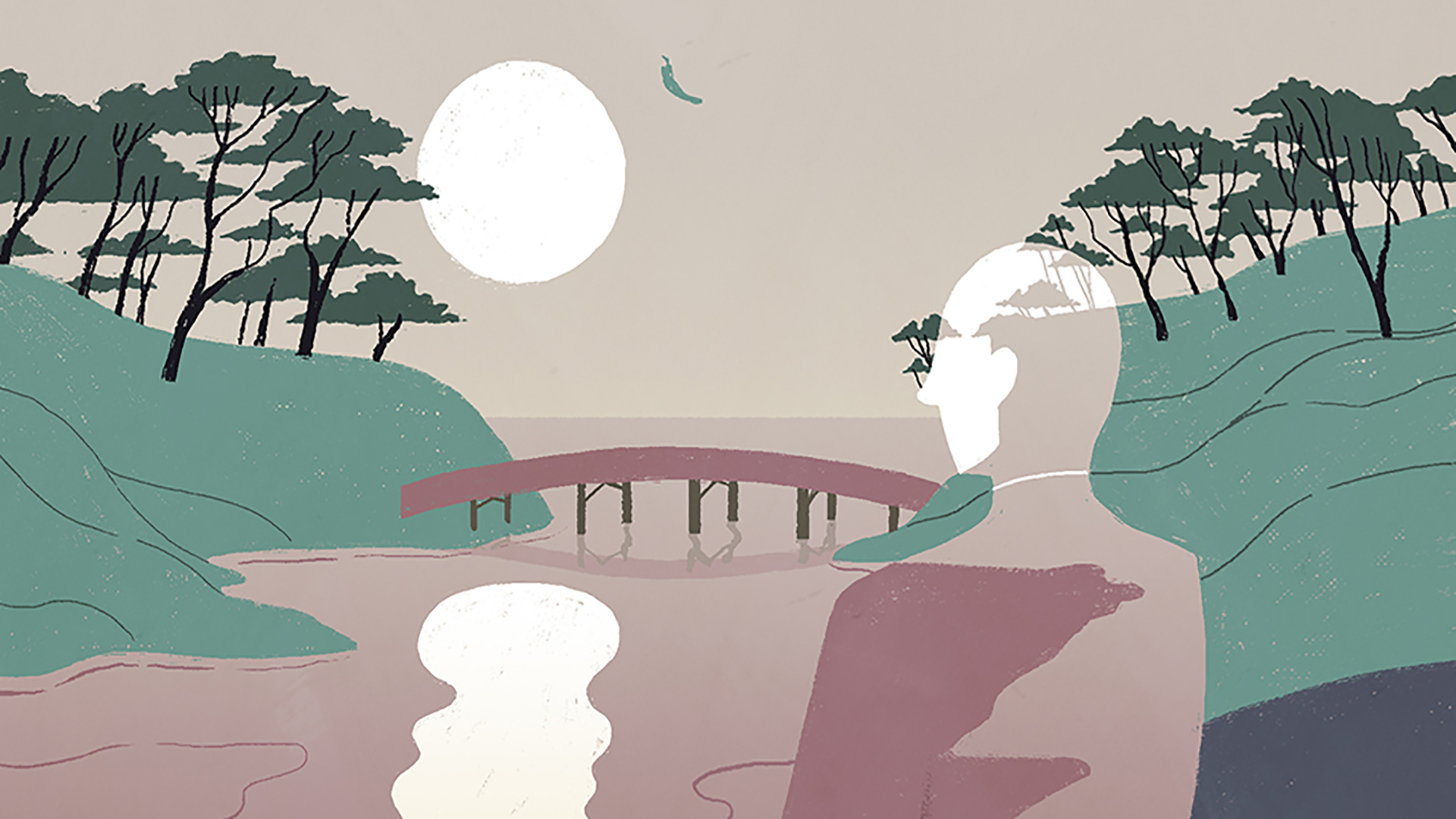Those of us who have been waiting excitedly to flag up the eccentric charms of German writer Marion Poschmann’s The Pine Islands received a little fillip last week when the novel was nominated for the Booker International Award. One hopes that many more will now read it, and laugh out loud on trains, as I did.

Fans of oddball European literature will get an instant hit from the very first paragraph of Poschmann’s strange and endearing novel (“He’d dreamt that his wife had been cheating on him… She denied everything. This only confirmed his suspicions.”) There are immediate hints of Kafka, Kundera and Dorthe Nors in this story of a beard-specialising lecturer so incensed by his wife Mathilda’s imaginary infidelity that he drives to the airport and gets on the first plane to Japan. For English-speaking readers, the novel’s foreign, slightly trepidatious tone – common to translated works – seems particularly appropriate for the tale of a middle-aged man whose disconnection with his current life and his younger self has led him to make a sudden, arbitrary leap into the unknown.
Once in Tokyo, and after a series of fruitless phone conversations with Mathilda (who is frustratingly still playing the victim rather than the repentant culprit) Gilbert meets a Japanese student preparing to throw himself under a train. Despite his aversion to Yosa Tamagotchi‘s devilish goatee beard, Gilbert takes the hapless young nihilist under his wing. They agree that the sterile train station is not a noble location in which to take one’s life; man should be motivated by beauty and poetry. Together they embark on their new dual mission; to find an appropriate place for Yosa’s suicide, after which Gilbert will follow in the footsteps of his new hero, the pilgrim poet Matsuo Bashō , and travel into ‘wild, dangerous’ north Japan to see the moon rise over the pine islands of Matsushima.
This is a book about self-delusion; how often we misunderstand the source of our discontent, how we underestimate the value of that which stands so clearly outlined and well-lit before us, drawn instead to the romantic shadows of the alien and unknown. Gilbert is blindly, idiotically fanciful, skating along the edge of his own unsensational truth, terrified he might fall in. He wants to be the type of guy who is ‘mad for a certain kind of beauty’ and relies on the moon to guide him to it. But could it be that he can’t see the wood for the pines? If you’ve ever wondered how a writer of imagination and wit might blend Eastern Murakami-style mysticism with black-humoured Western realism (and who hasn’t?), this diverting novel will tell you everything you need to know.

If, on the other hand, you simply want to feel good about life, the universe and everything, you need to read Jonathan Scott’s The Vinyl Frontier. It is the inside story of one of the most optimistic and romantic acts of the last century – the compilation of the NASA Voyager Golden Record scientist Carl Sagan and his team sent into the cosmos in 1977 to represent the best of humanity to passing aliens. This delightful book lets us sit with Sagan’s crew as they debate the merits of Bach, Louis Armstrong, Chuck Berry and Georgian folk music, and collect spoken greetings from across the planet. The great seriousness and faith invested in their hopeful task is a much-needed reminder that human beings can be quite wonderful.
The Pine Islands by Marion Poschmann, translated by Jen Calleja (Profile Books, £12.99)










